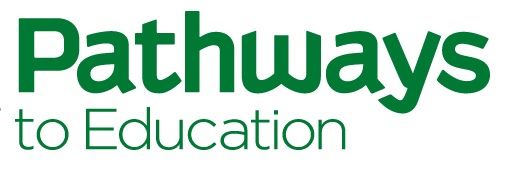With schools closed, teaching and learning taking place online, and in-person after-school programs on pause, concern is growing about the long-term consequences of COVID-19 on students, especially those from low-income communities. It’s important to ask: what do young people need right now to mitigate these impacts?
The answer: now more than ever, young people need connection and affirmation. They need supports that help them develop skills and competencies—like self-regulation and a growth mindset—to help them manage their learning and well-being.
At Pathways to Education, we have been focused on providing a strong sense of connection and skill development since our launch 20 years ago. While COVID-19 has certainly made things much more difficult by eliminating in-person meetings and group activities, our work of supporting youth in low-income communities continues.
Research on prolonged school closures and emergency education shows that, in order to effectively support youth during challenging times, youth-serving programs must reach out to students and families to identify their needs, then provide programming that supports social emotional learning and development. In short, impact is associated with knowing what youth need, helping them stay well, and supporting the development of skills that buffer against adversity.
The Pathways Program is well-positioned to provide these supports. While offering an effective research-based model for program delivery, it also prioritizes the flexibility needed to tailor programming to meet individual student needs. Staff-student interactions prioritize every student as an individual with unique needs as well as skills, interests, ambitions, and voice. The program works well because it allows staff to build relationships, not merely provide services.
As a result of these relationships, program staff are highly adept at assessing student needs on a daily basis. This in turn allows them to immediately respond to situations and circumstances, adapt scheduled programming, or shift into alternative conversations and interactions. These ensure that students feel supported and that their needs, anxieties, and immediate barriers are addressed in a timely and personalized fashion. This ability to “shift gears” and be present for students, based on their emotional or physical state, is frequently identified by staff as crucial to building lasting relationships. It is particularly crucial now, during the COVID-19 pandemic.
These supportive, developmental relationships—along with other protective factors in the program—generate the conditions necessary for positive youth development and, more specifically, the development of critical competencies such as self-regulation and a growth mindset.
Self-regulation helps students control and adjust their emotions, thoughts, and behaviours to reach a personally meaningful goal. A growth mindset protects youth from being derailed by difficulty and makes it easier for them to transcend momentary setbacks in order to focus on long-term goals. Having a growth mindset helps young people exercise control over their lives and understand that their success depends on their effort, that it is not pre-determined by their backgrounds or prior experiences. Both self-regulation and a growth mindset are important in youth development because they make it possible for young people to manage their focus, control impulses, and stay on task as they work toward a meaningful objective. They are also crucial in helping young people cultivate better habits, improve coping skills, increase optimism for the future, and develop a sense of well-being.
These qualities are absolutely essential in situations of uncertainty and stress, like the COVID-19 pandemic. They also facilitate positive long-term academic outcomes and labour market success. Emerging internal research at Pathways confirms that the supports students receive help them develop and strengthen these competencies as they progress through the program.
The pandemic has introduced a lot of uncertainty into the lives of young people. For those who live in situations of disadvantage—including Pathways students across the country—that uncertainty is exacerbated by additional stressors and challenges. But by maintaining connection with youth, understanding and responding to their barriers and challenges, and continuing to use relationship-building to help them develop much-needed skills, we are able to help Pathways students cope with the highly stressful realities of the present moment, and give them the tools to overcome this disruption to their education and lives.
The barriers to education have never been higher. You can help students from low-income communities stay connected.

Konrad Glogowski, Ph.D.
Director, Research and Evaluation
Pathways to Education Canada
As the Director of Research and Evaluation, Konrad is a champion for our commitment to excellence through evidence. He leads a team who systematically and rigorously gathers relevant data to monitor and measure our program’s performance and overall impact. He is also responsible for implementing our national research and knowledge mobilization strategy, including research to help us better understand educational attainment and youth well-being programs and approaches, both at home and abroad. Konrad holds a Ph.D. degree in education from the Ontario Institute for Studies in Education of the University of Toronto, with a focus on adolescent development and learning.
